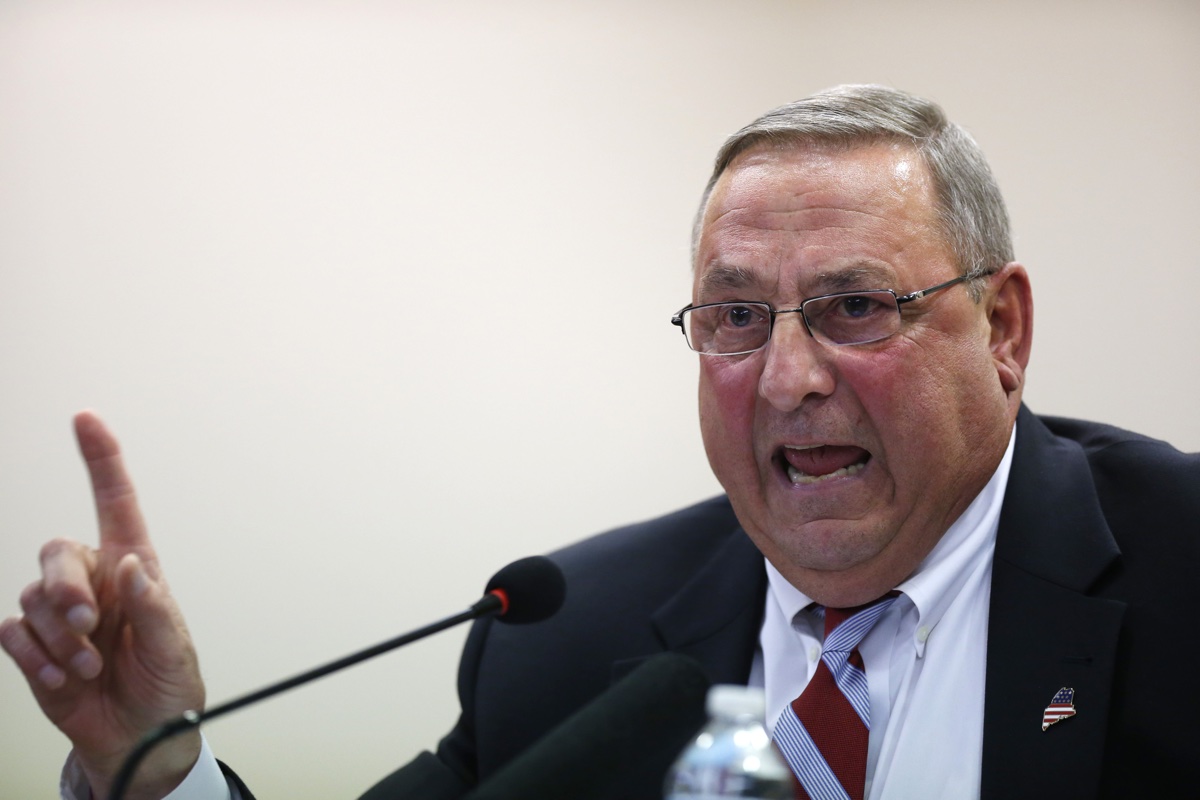Paul LePage Hints He Might Resign

Photo via AP
So you’ve probably been hearing a few things lately about Paul LePage, the Republican governor of Maine, who has been freely sharing his reactions to the opioid crisis in his state, all of which wrapped him up in a series of controversies, both at home and here in Boston.
Here’s a brief recap of Paul LePage’s year of infamy:
- He pins the state’s drug problem on traffickers out of state, who “are guys with the name D-Money, Smoothie, Shifty, these types of guys,” who “half the time they impregnate a young, white girl before they leave.”
- He tells the world about his three-ring binder containing mugshots for people arrested for drug offenses. Most of them are black and Hispanic, he says.
- Meanwhile, as a Donald Trump supporter, he goes to bat for the candidate by calling Khizr Kahn, the father of a dead soldier and a Trump critic, a “con artist.”
- Soon after he leaves a state lawmaker a threatening, expletive-laden voicemail after he believes the man called him racist.
- He then arrives in Massachusetts for a conference, where he levels blame for the opioid crisis on minority communities outside his state, including Lowell and Lawrence: “The heroin-fentanyl arrests are not white people. They’re Hispanic and they’re black and they’re from Lowell and Lawrence, Massachusetts, Waterbury, Connecticut, the Bronx, and Brooklyn,” he says.
All of this outspokenness has led to calls for him to step down. The Portland Press Herald on Friday felt compelled to apologize to America for electing Paul LePage and pledged to “try not to do it again.”
Well, LePage is now hinting that he sees the writing on the wall, and may not finish his term.
“I’m looking at all options,” he said Tuesday on the Bangor radio station WVOM, as reported by the Press Herald. “I’m not going to say that I’m not going to finish it. I’m not saying that I am going to finish it.” He added, ““If I’ve lost my ability to help Maine people, maybe it’s time to move on.”
He also apologized for the vicious voicemail he left Maine Rep. Drew Gattine. He says he overreacted because he was angry Gattine called him a racist (Gattine claims he didn’t use that word).
“When I was called a racist, I just lost it. And there’s no excuse. It is unacceptable. It is totally my fault,” LePage tells the radio interviewers. “Racist is like a word—I just can’t explain it—it’s like calling a black man the ‘n’ word or a woman the ‘c’ word.”
That doesn’t mean LePage is backing down from the stance he’s taken on race, namely that he believes black and Hispanic people are especially responsible for the opioid epidemic, and that it’s important for him to say so repeatedly.
“When it comes to meth labs, [arrests] are essentially all Maine white people. When it comes to the heroin epidemic, it’s just the opposite,” he says. He adds: “They’re saying, ‘Well, you can’t do this. Every day you say you can’t do it because of the racially charged atmosphere in our country but the same token is all lives matter,” a slogan used by critics of the Black Lives Matter movement.
“That’s the bottom line: All lives matter.”

